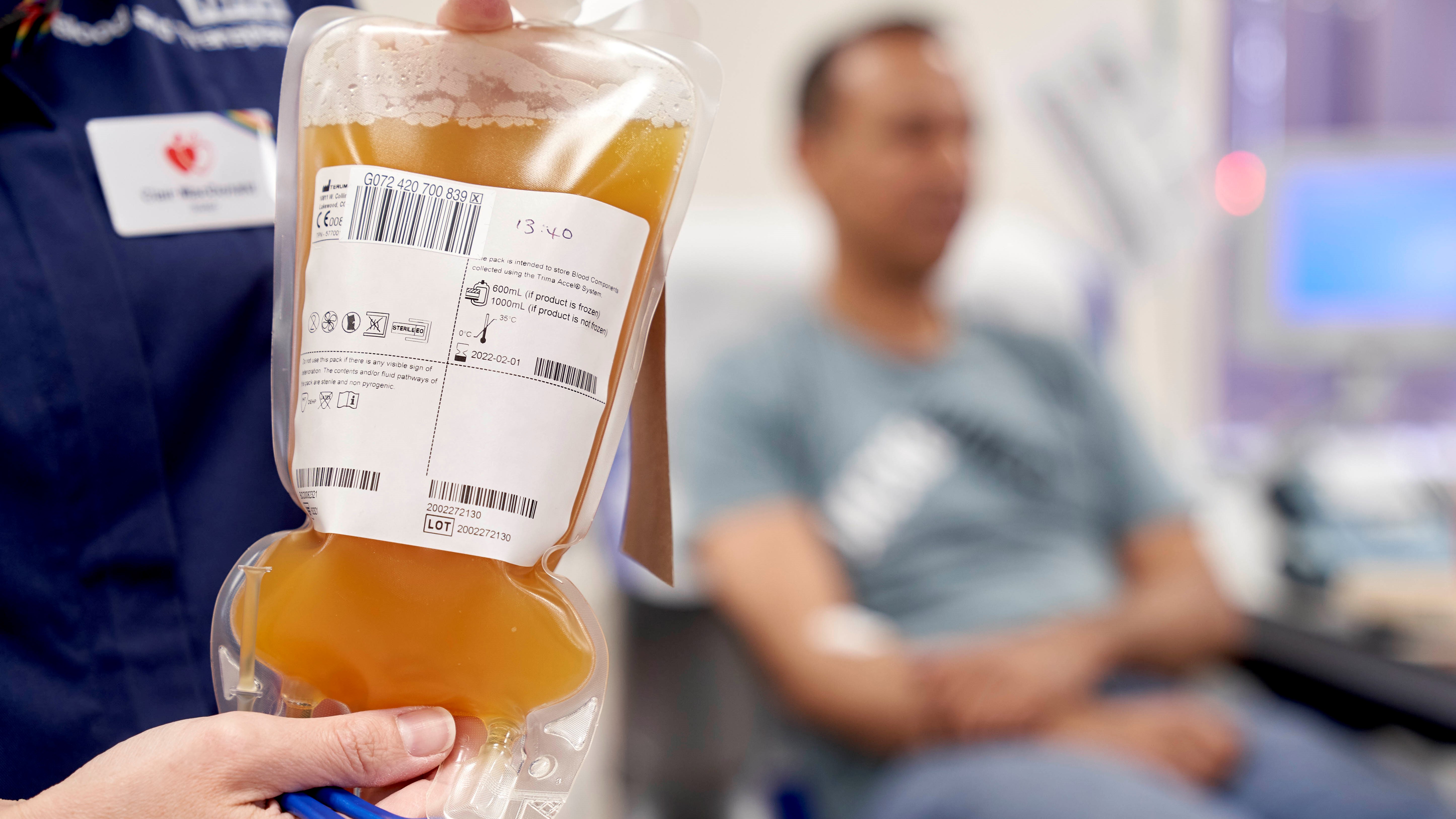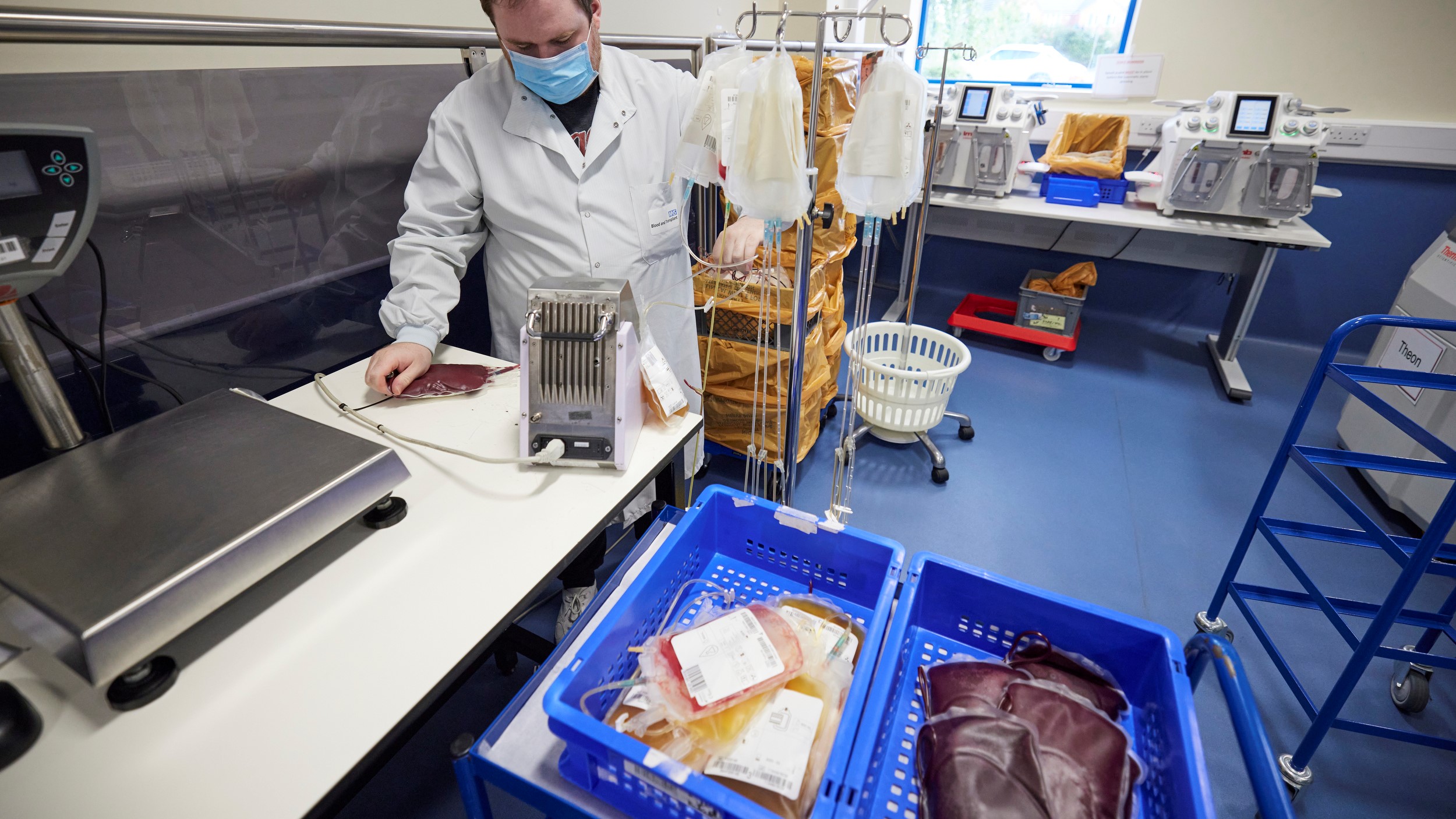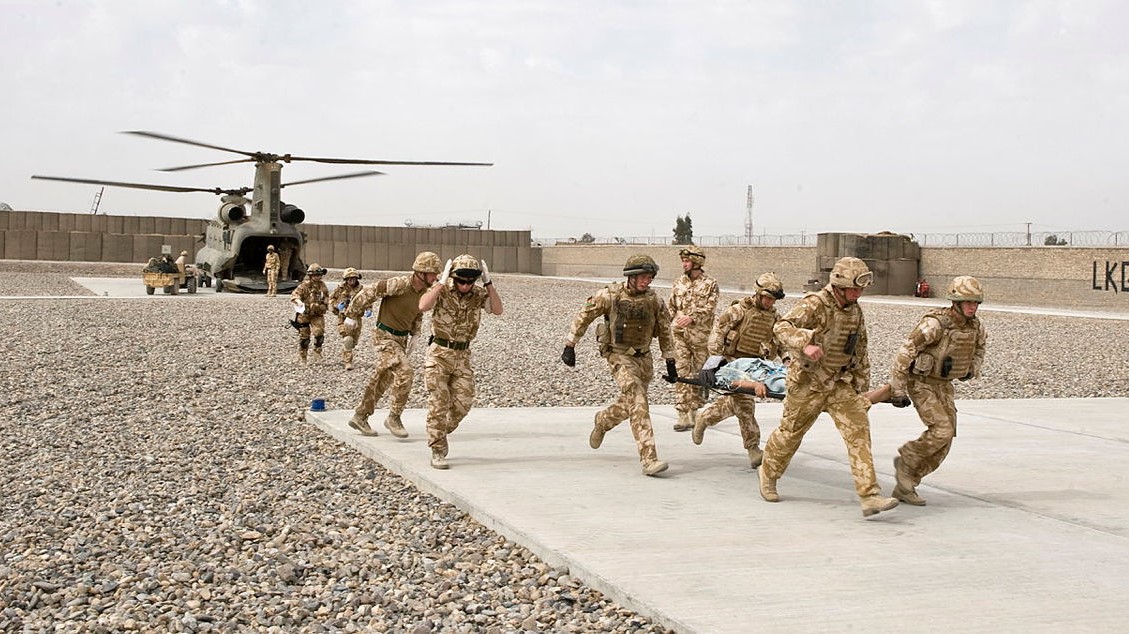
Dried blood plasma project to help save soldiers' lives

The Ministry of Defence (MOD) has launched a project to rapidly deliver blood and plasma to injured soldiers.
Hoping to save lives in active warzones, MOD's Blood Far Forward programme aims to deliver blood and plasma within 30 minutes of injury to soldiers.
Using dried plasma – which helps the blood to clot – it will decrease the Army's reliance on frozen plasma which has to be thawed, taking longer to administer.
'Important step forward'
Dr Andrew Murrison, Minister for Defence People, Veterans and Service Families, said: "We're always striving to improve our ability to treat trauma in the field, and catastrophic injuries that require acute medical attention in adverse environments, including the battlefield, are some of the most challenging.
"Treating people quickly and near to the point of injury is so often critical. That's why dried plasma is such an important step forward."

Dried plasma benefits
According to the Army, in the warzone, most deaths happen within 60 minutes due to catastrophic injury, head injury or major haemorrhage.
The early provision of plasma with red cells will dramatically reduce mortality from a major haemorrhage.
"Frozen plasma currently takes an average of 20 minutes to thaw and transporting it poses major logistical challenges, including requiring a freezer and specialist equipment.
"In contrast, dried plasma can be stored at room temperature and can be used by the medic when needed."
A way to manufacture dried plasma for use on military operations by NHS Blood and Transplant is being funded by the Army.
'Potential to save soldiers' lives'
Health Minister Neil O'Brien said: "This project has the potential to save soldiers' lives by treating significant blood loss with plasma.
"We are continuing our history of health innovation on the battlefield and investing in cutting-edge treatments by delivering plasma made in the UK to the frontline.
"We work best when we're working together and this project is the perfect example of the Government, NHS Blood and Transplant, the Army and medical technologists collaborating to deliver transformative care to people when they need it."

The future
Currently, the Army sources dried plasma from Nato partners, which is subject to significant worldwide demand.
If it is able to be sourced from the UK, it would ensure that the Army would have an adequate supply and, at the same time, not be reliant on others.
This project will also look to enable single units of plasma to be produced without the need for complex facilities and placed in more convenient, plastic bags.
Rebecca Cardigan, Head of NHS Blood and Transplant's Component Development Laboratory, said: "Plasma saves lives every day by treating massive blood loss.
"We're now researching and developing a world-class dried plasma product which will not only save the lives of the Army's battlefield casualties but could one day be used in civilian care where there are also logistical challenges, such as by air ambulance crews."









